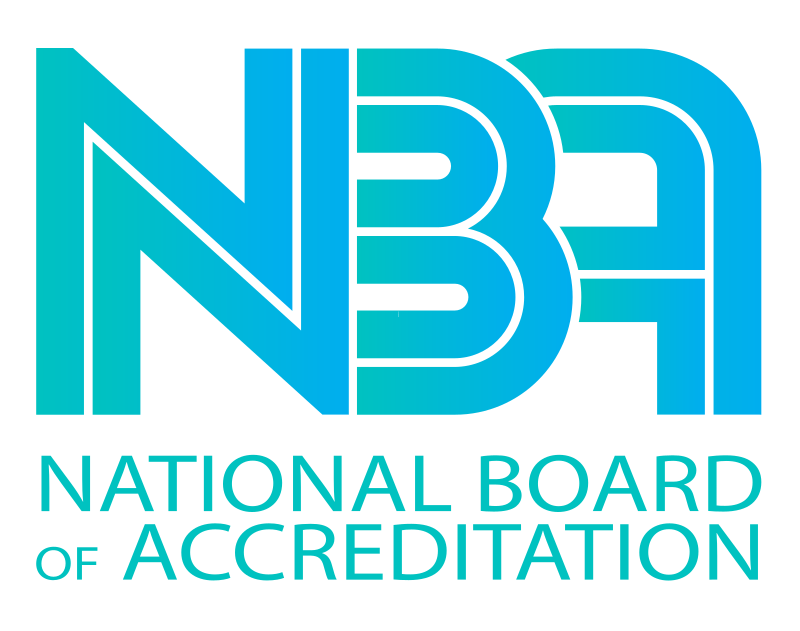Best B.Tech Food Technology College in Kolkata and West Bengal
It is with immense pleasure that we welcome you to the Department of Food Technology at Guru Nanak Institute of Technology, which has steadily emerged as one of the best food technology colleges in Kolkata and West Bengal. Since its establishment in 2006, the department has seen consistent growth, beginning with an intake of 60 students and now being recognized as a leader in food technology education in West Bengal. With NBA accreditation since 2014, the department continues to make strides in delivering cutting-edge food technology education.
Our department offers a unique blend of academic rigor and industry-oriented learning, where students can gain a comprehensive understanding of food technology engineering. We offer a modern learning management system designed to integrate the latest advancements in the food processing sector with real-world technical skills. Our experienced Ph.D. faculty members bring the latest research and developments in food technology to the classroom, ensuring that students are equipped with the knowledge required for success on a national and international scale.
Furthermore, our students have actively contributed to the field by publishing research papers in reputed national and international journals, presenting papers at national/international seminars, conferences, and workshops. These accomplishments are made possible through the continuous guidance and mentorship of our esteemed faculty members. In addition, our students have excelled in various competitions, including those held at prestigious institutions like IIT-KGP, Jadavpur University (JU), BHU, and FOSET.
We take pride in being a part of the top food technology colleges in India, offering a robust academic framework that positions us as one of the best colleges for food technology in Kolkata and West Bengal.

6 Years

Dr. Dolanchapa Sikdar
It is really a matter of great pleasure to share a few words about the Department of Food Technology of Guru Nanak Institute of Technology which has established itself as a leading educational institute in the field of Food Technology in West Bengal. It’s very impressive to share that the department received the honor and benchmark accreditation of National Board of Accreditation (NBA) for 6 Years (2022-23 to 2027-28 under tier 1).
Since its establishment in 2006, the department has continuously strived for improvement, organizing various programs such as entrepreneurship development programs (EDP), seminars, conferences, workshops, and symposiums. This demonstrates a commitment to providing students with holistic development.
The potent attributes of the Department are:
Some noteworthy accomplishments by the Department include securing a Rs. 50 lakhs grant from the Ministry of Food Processing Industries, Government of India, for infrastructural development, receiving an Rs. 18 lakhs grant from MODROB-AICTE, and obtaining a Rs. 4.0 Lakhs grant from the Department of Food Processing Industries & Horticulture, Government of West Bengal, for establishing a Food Processing Training Centre.
In addition, the Department has signed MOUs with reputed industrial ventures such as Paushtik Life, SHRM BIOTECHNOLOGY PVT. LIMITED, M/S Crushiers Fruit Juice CO., Wisdom Group, Smart Management Consultancy and Vedaantic Organic Research Foundation. Besides, the Department has collaborated with esteemed International and National institutes like The Puntland State University , Somalia and EMCTD.
The Department boasts a cadre of distinguished alumni whose achievements resonate across various sectors encompassing academia (M. Tech from Jadavpur University, IIT Kharagpur, University of Calcutta, M. S. In University of Dresden, Germany, M. Tech from NIFTEM, SLIET Punjab, IICPT Thanjavur, ICT Mumbai, MBA from IISWBM, Kolkata, MBA from Symbiosis, Pune, NIT Durgapur, ISB Hyderabad), industry (ITC Food Division, Britannia Industries Ltd., PepsiCo (India) Holdings Pvt. Ltd, Bengal Beverage (Coco Cola), Keventer Agro, India Dairy Products (AMUL), Red Cow Dairy, Almarai (UAE), Don-Limon (Germany), Nestle India Ltd. and many more), government (Food Safety Officer, Lecturer in Govt. Diploma Colleges, Food Inspector, Agricultural Marketing Officer, Jobs in FCI and FSSAI, Agriculture Officer in Govt. Banks, Agricultural Associate in SBI, DRDO, Indian Army), and beyond.
In essence, the Department of Food Technology at Guru Nanak Institute of Technology remains steadfast in its commitment to delivering a holistic and industry-relevant education to its students. I’m excited to be a part of this institution and contribute to the academic and research endeavors here.
Eighty nine percent of students say services helps them feel like they belong at GNIT
Keeping in line with the Institutional Vision, the Departmental Vision is:
To achieve its own vision the Department of Food Technology is committed to
Engineering Graduates will be able to:
Organization of Food Tech Fest: Food Envision.
Inauguration of Departmental Magazine (FT-Realista)
Industry Visit at ITC, and Pepsico.
Workshop on Awareness regarding Detection of Food Adulteration.